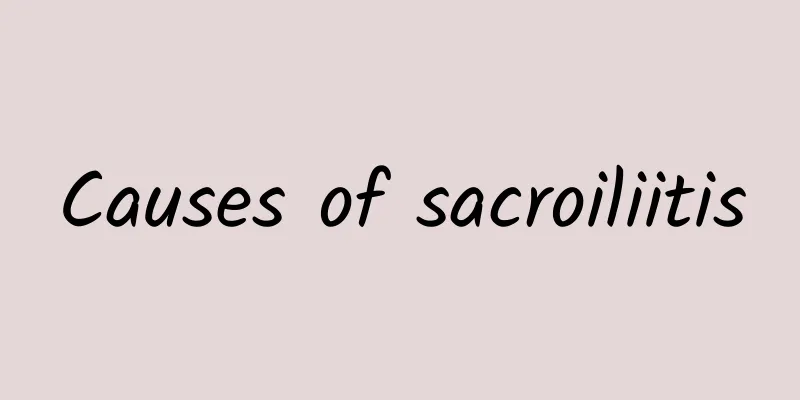Symptoms of sequelae of cerebral infarction

|
Diseases like cerebral infarction really have a huge impact on us. Many people die from cerebral infarction every year. Everyone should be familiar with cerebral infarction. There should be many patients with cerebral infarction around us. Faced with such a disease, many people don’t know what to do, especially the sequelae of cerebral infarction have a great impact. Let’s take a look at the symptoms of sequelae of cerebral infarction. If cerebral infarction is not treated as soon as possible and if you do not pay attention to it in daily life, it will easily cause sequelae of cerebral infarction. The sequelae of cerebral infarction are also very serious, and the patient will suffer a great psychological blow. Everyone should learn more about the symptoms of sequelae of cerebral infarction. Clinical manifestations 1. Hemorrhagic stroke (1) Limb dysfunction mainly manifests as sensory and motor dysfunction on the hemiplegic side (2) Cognitive and mental disorders: Large-scale or repeated cerebral hemorrhage may cause mental and cognitive disorders, such as personality changes, pessimism, depression, mental depression, irritability, etc. (3) Speech dysfunction. (4) Swallowing dysfunction. (5) Other symptoms include headache, dizziness, nausea, insomnia, nightmares, inattention, tinnitus, blurred vision, sweating, palpitations, unsteady gait, neck pain, fatigue, weakness, loss of appetite, memory loss, dementia, depression, etc. 2. Ischemic stroke (1) Hemiplegia is the most common sequelae of cerebral thrombosis. One side of the limb has weakened muscles, difficulty in movement, or is completely unable to move. It is often accompanied by sensory disturbances in the ipsilateral limbs, such as insensitivity to cold and heat, and insensitivity to pain. Sometimes it is accompanied by ipsilateral visual field loss. (2) Aphasia: Motor aphasia is characterized by the patient being able to understand what others say but unable to express his or her own ideas. Sensory aphasia does not cause any language expression disorder. Patients cannot understand what others say, nor can they understand what they say. The result is irrelevant answers and "talking to themselves". Anomia is when one sees an object and can tell its purpose, but cannot name it. (3) Large-scale or multiple recurrences are also symptoms of sequelae of cerebral thrombosis, which may leave mental and intellectual disorders: personality changes, pessimism, depression, mental depression, irritability, etc. (4) Other symptoms include headache, dizziness, nausea, insomnia, nightmares, inattention, tinnitus, blurred vision, sweating, palpitations, unsteady gait, neck pain, fatigue, weakness, loss of appetite, memory loss, and intolerance to noise. Everyone should be aware of the symptoms of sequelae of cerebral infarction. We should prevent the occurrence of cerebral infarction in daily life, especially pay attention to diet, and don’t eat too greasy food. If cerebral infarction occurs, it must be treated in the early stage. If the treatment is not timely, it is very likely to leave some sequelae of cerebral infarction. |
<<: Precursor of cerebral infarction
Recommend
What are the eye anti-inflammatory drugs?
The eyes are a very important part of our body an...
Precautions after bile duct drainage surgery
Biliary drainage is a common method for treating ...
What to do if you have pharyngitis and sore throat? An old Chinese doctor teaches you some small remedies
Pharyngitis is a common throat disease that occur...
What to eat to help a fetus grow with ventricular septal defect
Many people do not have a special understanding o...
What causes hemorrhoids?
The current stress of life and the inappropriaten...
Primary nephrotic syndrome
The kidneys are important organs in our human bod...
Is it okay to wash your face with salt water all the time?
Washing your face is the most common thing we do ...
What are the effects and uses of baby facial masks?
Facial masks can provide good protection for the ...
Adding this to your foot wash can actually cure athlete's foot
Our feet are covered with socks and shoes all day...
Will drinking Chinese medicine cause internal heat?
Traditional Chinese medicine is a traditional cul...
What is the recipe of Siwu Decoction?
Siwu Decoction is a relatively traditional prescr...
Mental health standards
In today's society, competition is fierce and...
Nightshade flower pictures
Nightshade flower is a plant that we have cultiva...
The effect of drinking wine soaked in Ligustrum lucidum
Fructus Ligustri Lucidi is a relatively common Ch...
What should I do if a big swelling appears after cupping?
Traditional Chinese medicine treatment methods ar...









